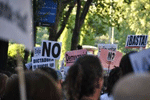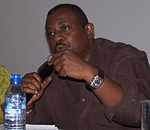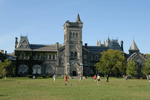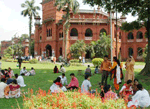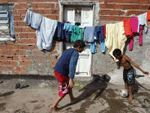Published on Mon, 2011-09-05 08:12
Source: Plataforma 2015 y Más The main union federations in Spain and many civil society organizations including Plataforma 2015 y Más (a member of Social Watch) established last week a programme of demonstrations to express their rejection of the change to the Constitution the governing Spanish Socialist Workers Party (PSOE) and the opposition Popular Party (PP) are contemplating. The change would set a limit to the public deficit, and the people’s organizations are calling for a public referendum to decide this matter. |
Published on Fri, 2011-09-02 07:24
Sources: BusinessGhana, ThinkGhana, Ghana Business News, MyJoyOnline, GhanaWeb, AllAfrica Several Ghanaian civil society organizations warned that the renewal of the interim Economic Partnership Agreement (EPA) between the country and the European Union (EU) will condemn the Western Africa integration process and the national economy to an irreparable doom. The Third World Network-Africa (TWN-A, focal point of Social Watch), the General Agricultural Workers Union (GAWU), the Integrated Social Development Centre (Isodec) and Abantu for Development, among other groups, said the government must not give in and sign an agreement which will be harmful to the long-term development goals and aspirations of the country. |
Published on Thu, 2011-09-01 07:23
Sources: Market Wire, CCPA Ontario's system of financing higher education is becoming less equitable and more regressive for families, says a study released this week by the Canadian Centre for Policy Alternatives (CCPA, one of the focal points of Social Watch in this North American country). |
Published on Wed, 2011-08-31 07:44
Source: The Daily Star The South Asian Social Forum 2011 will be held in Dhaka, for the first time in Bangladesh, from November 18-22. University of Dhaka (DU) will co-host the conference. |
Published on Tue, 2011-08-30 07:17
Source: Inesc Thousands of people in favelas (shanty towns) in Rio de Janeiro are being evicted from their homes as Brazil prepares for the 2016 Olympic Games, and the same is happening in other cities that will host matches during the 2014 World Cup. According to the lawyer Roberto Benedito Barbosa, an activist in the Sao Paulo Union of Housing Movements (UMM), this is being done "to move the poor farther and farther away from rich neighbourhoods”. This matter has already reached the United Nations where it is giving cause for concern. |

